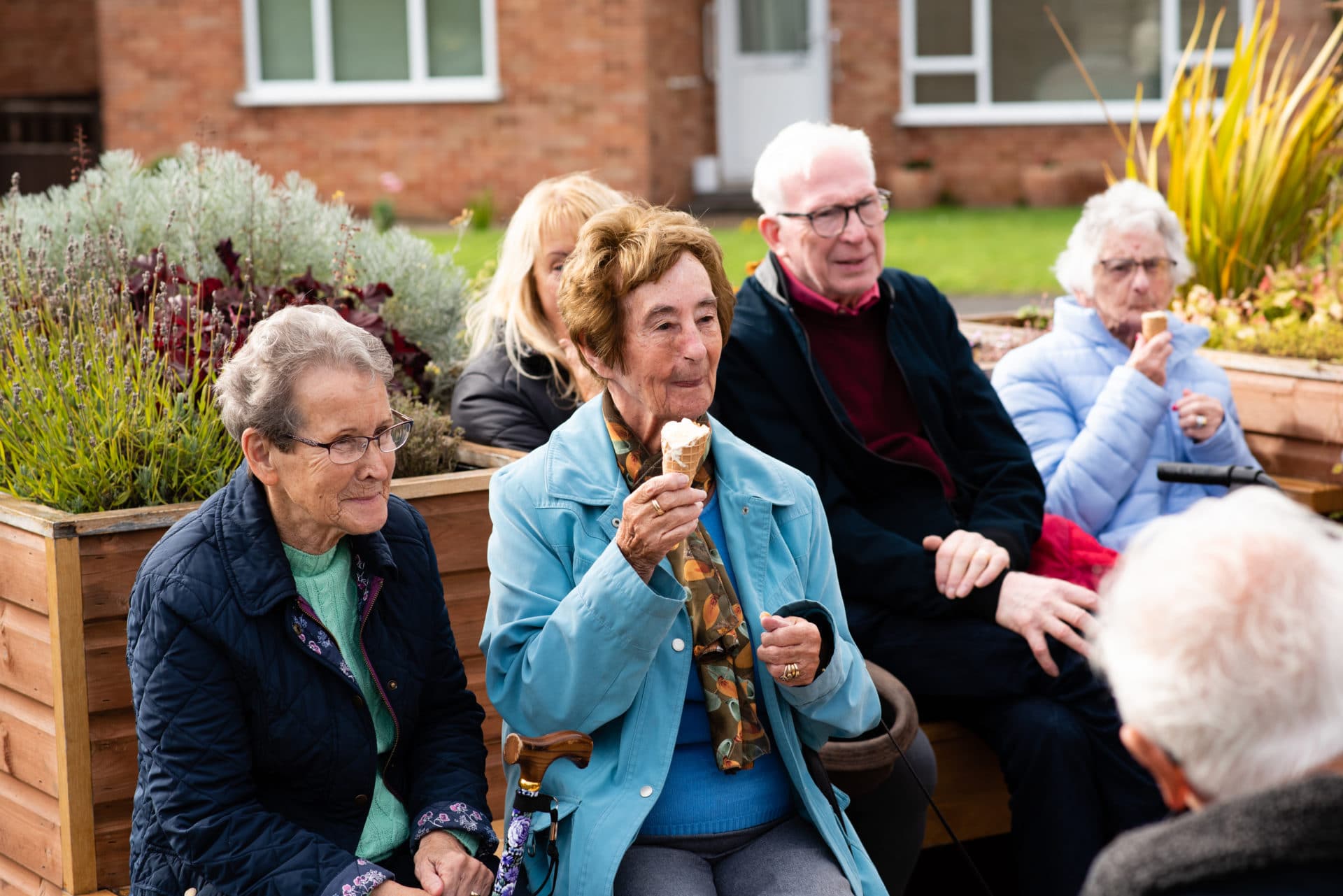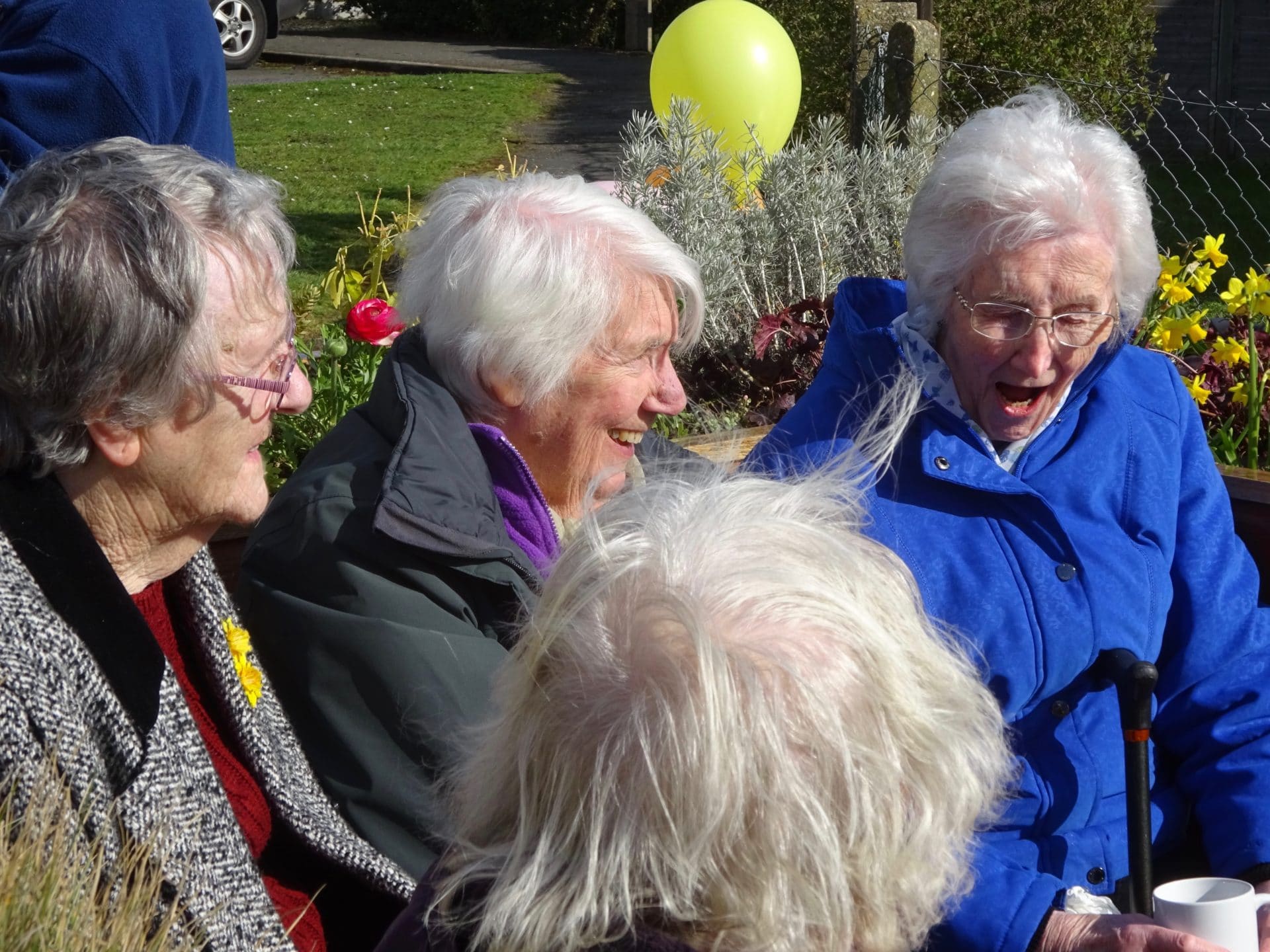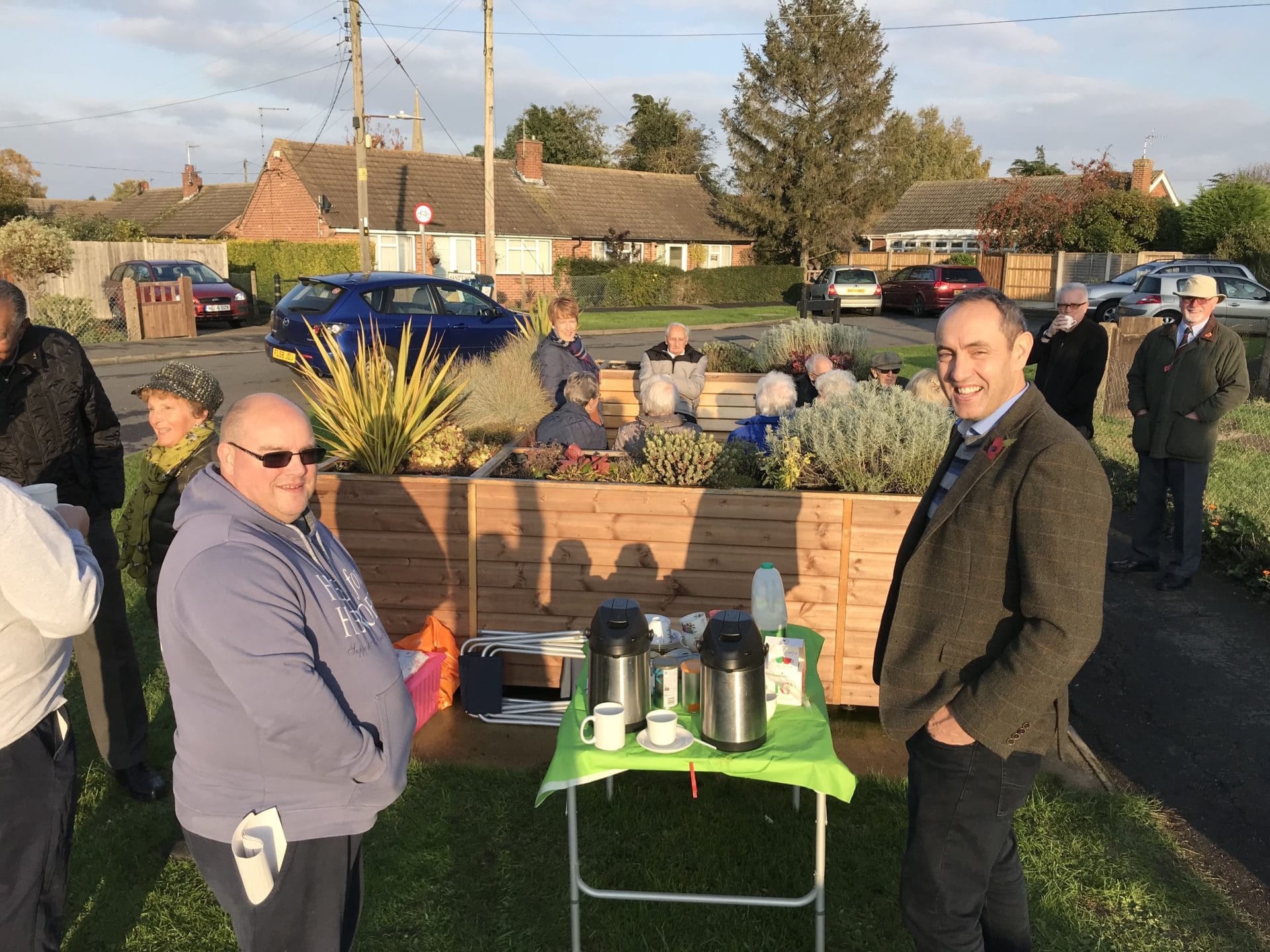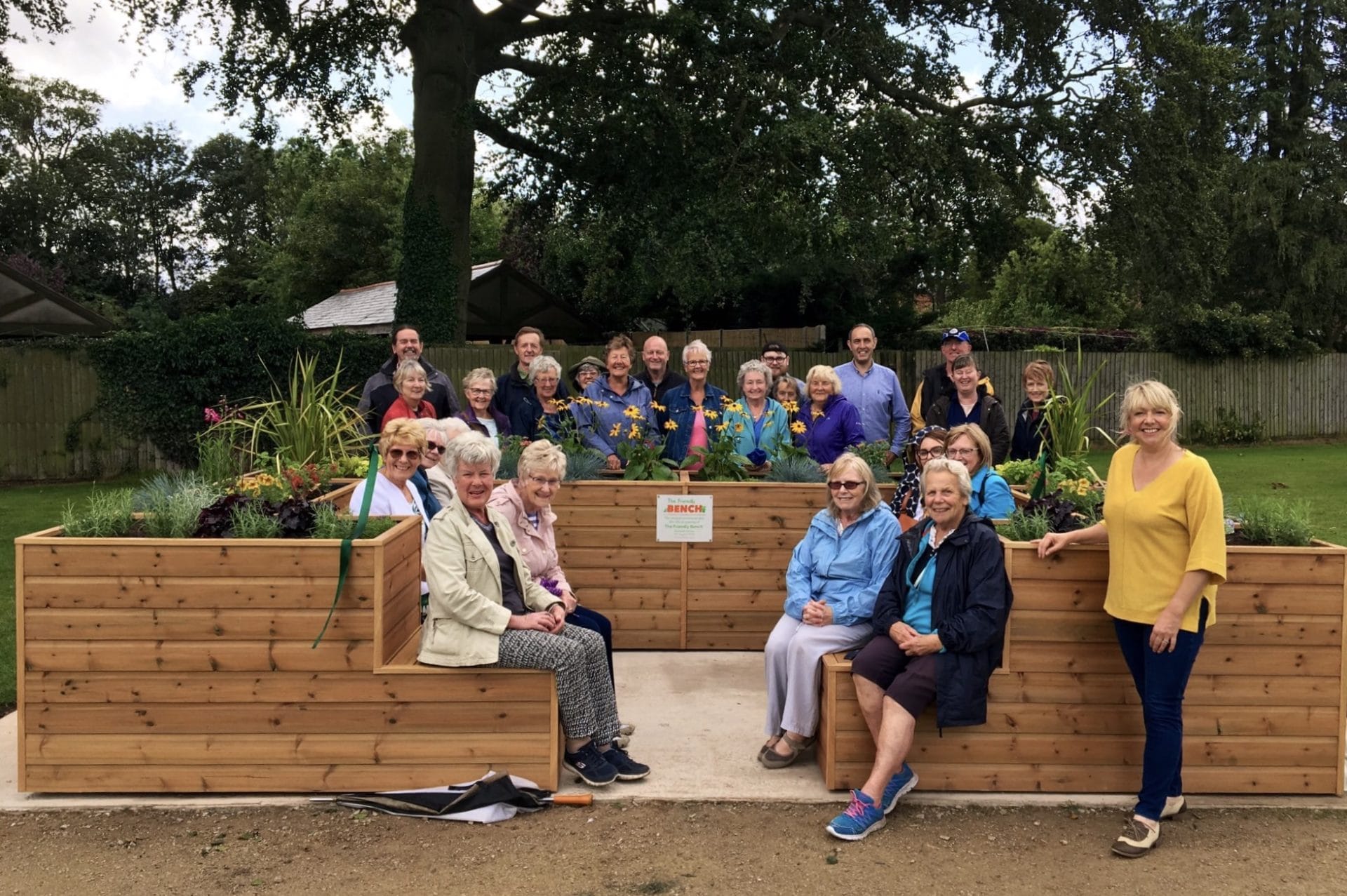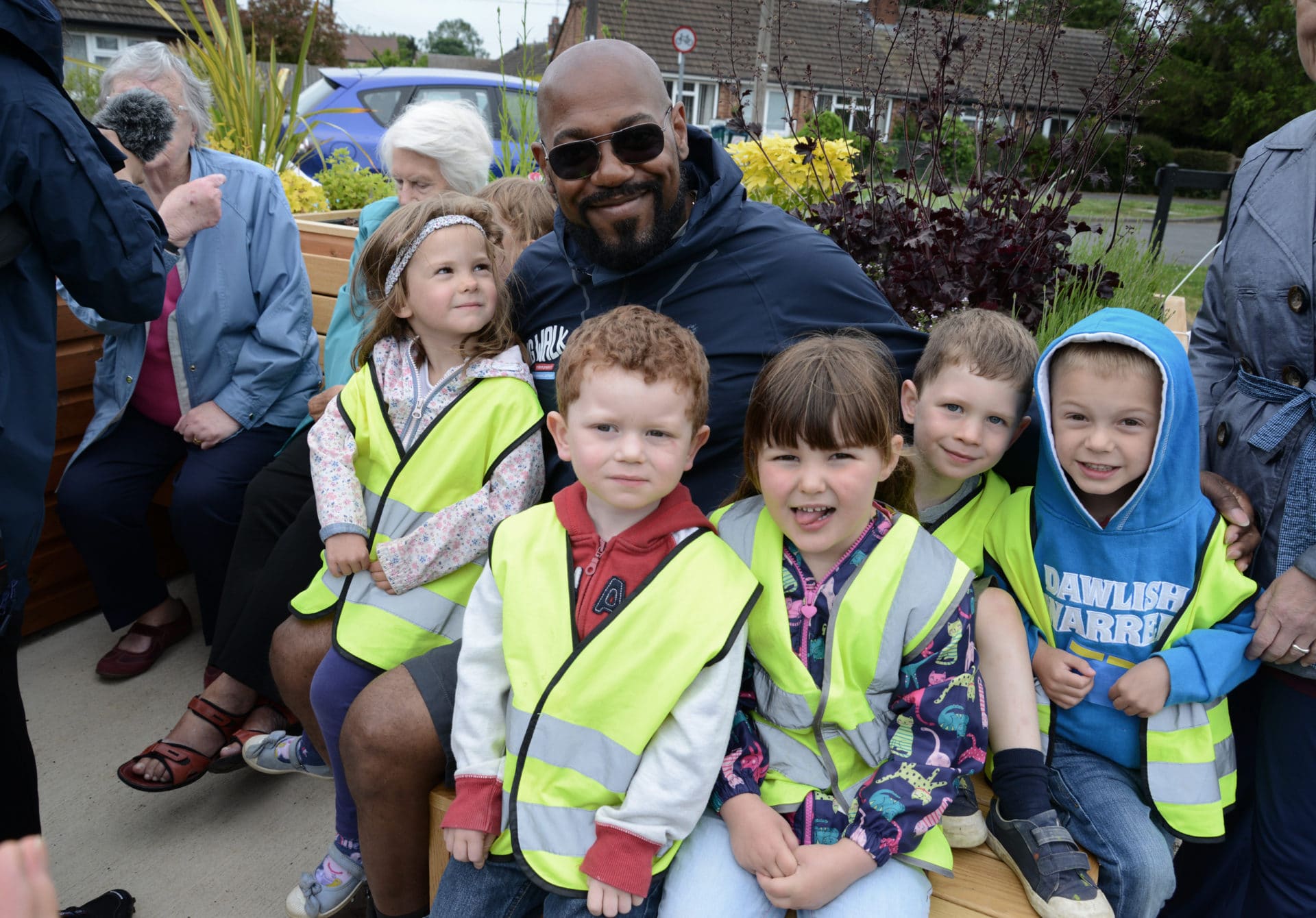United Kingdom (Bottesford )
In long-running British soap opera Eastenders, the main square is home to what is known as the ‘Bench of Tears’, as it’s often the place where characters will go and cry when they’re having a bad time.
But benches aren’t places where you go to cry. A symbol of a people-friendly space, this common piece of street furniture can be a place where people laugh, make friends, share their stories, enjoy community-led activities and make genuine connections.
And that’s exactly what Lyndsey Young is creating. In March 2018 she launched social enterprise The Friendly Bench to tackle loneliness, social isolation and disconnectedness; by providing hubs where people of different ages and backgrounds could come together to find common bonds.
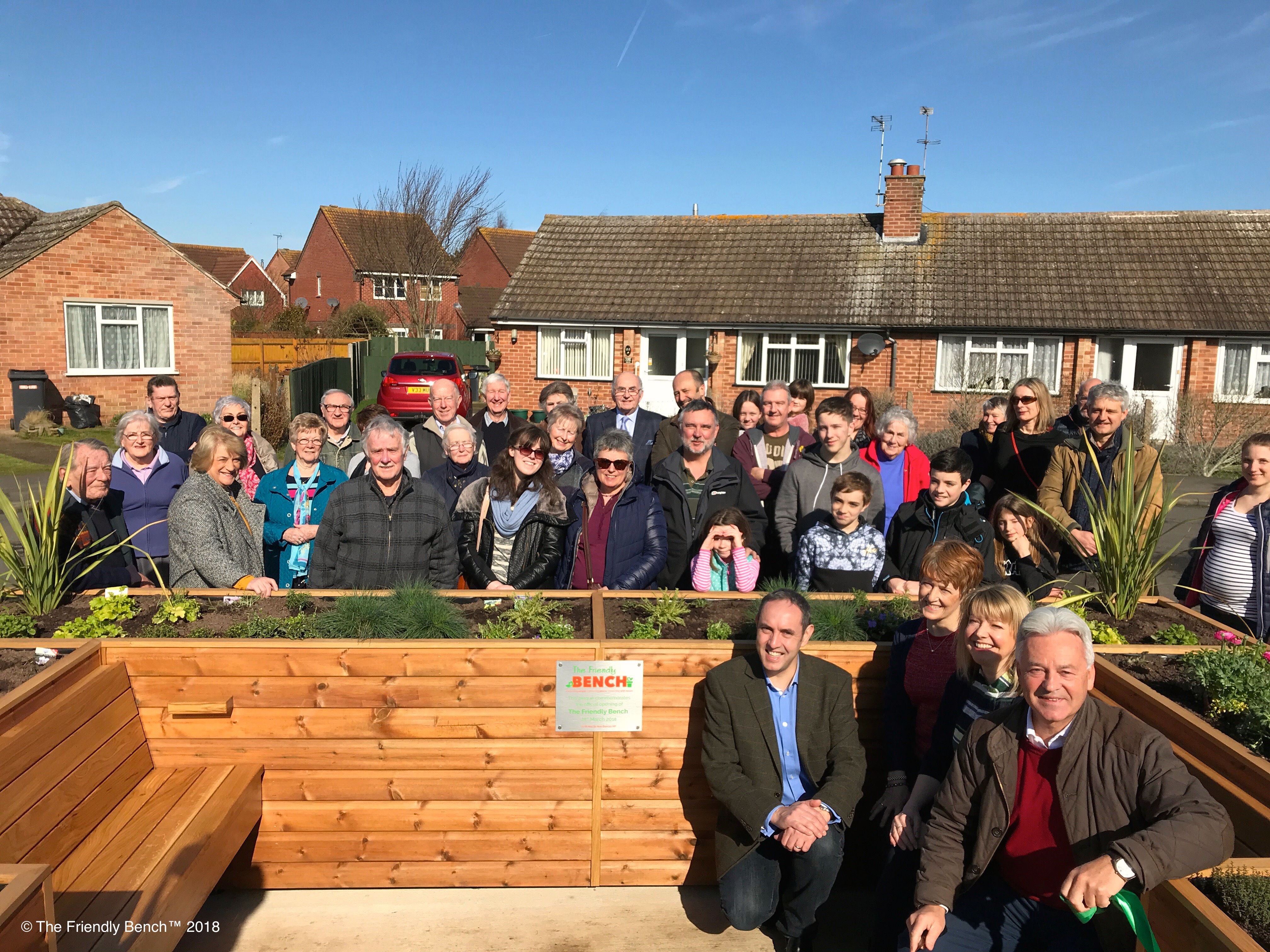
Age-friendly cities need public benches to provide welcome resting spots for older people. Without these, many feel trapped indoors, unable to travel to shops and isolated from visiting friends and family on foot. But The Friendly Benches aren’t just benches. They are mini community gardens with specially designed seating and plants. And they are easily accessible for all.
These social spaces run free activities and events to encourage everyone – of all ages and backgrounds – to have fun, meet, chat, connect, build friendships and have a sense of belonging. As a member of the network, each group receives free advice, support, sharing of best practice, marketing resources, publicity and promotion from the Bench team. Volunteers get together in groups to run regular activities and events including afternoon teas, kerbside concerts, intergenerational gardening projects like ‘Blossoming Friendships’ and men-only events like ‘Blokes, a Brew and Banter’.
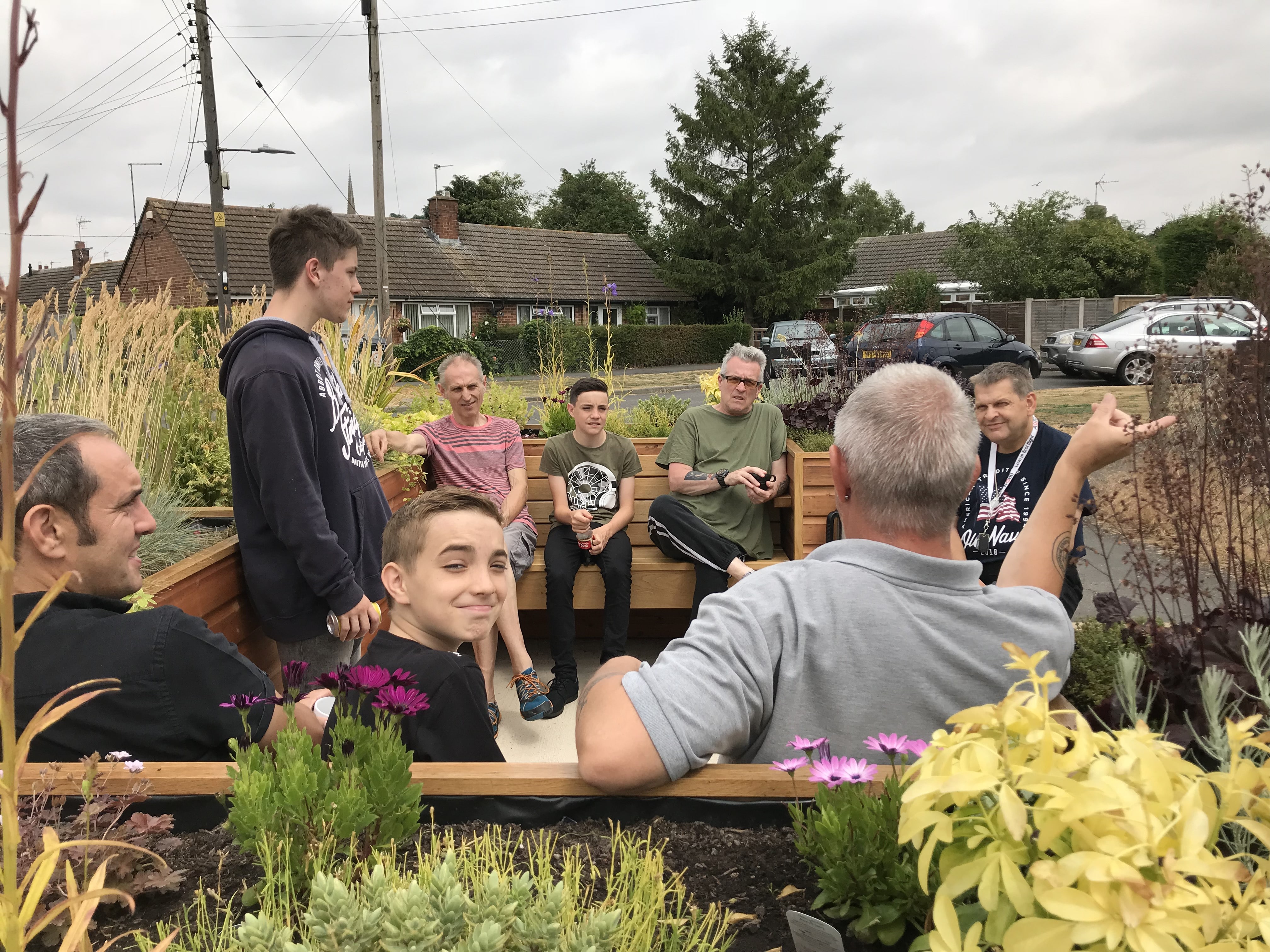
According to the UK’s Campaign to End Loneliness, there are nine million lonely people in the UK and four million of them are older people. “A variety of factors can make many people, particularly older people, more vulnerable to becoming socially isolated. Bereavement, no longer having family living nearby, limited mobility, low income and loss of confidence all add to loneliness,” Lydnsey tells us.
Lyndsey herself is no stranger to the feeling. The new mum was surprised that freelancing, although useful in its flexibility, wasn’t as full of joy as she had anticipated. “I was occupied with my firstborn, visiting friends and attending toddler sessions. Then as a freelancer, I was actively engaged online tweeting, sharing, liking and make ‘small talk’ on my numerous social media feeds,” she opens up. “I was – in everyone else’s eyes – ‘happy’, ‘engaged’ and ‘living a busy and fulfilling life’. But this wasn’t how I was truly feeling.”
A feeling of disconnection began to slowly take hold; she felt like life seemed to be happening around her – out of the window, on her smartphone screen and in those distance clusters of mums in the school playground. “I was present, but I wasn’t connected.”
The sustainability fan built up the courage to proactively connect with new people by volunteering at National Trust and later landed a job at The Wildlife Trust working on their Every Child Wild campaign, which taught her the benefits of nature on wellbeing. “I decided to create an inclusive outdoor space where people could meet, connect, enjoy the benefits of being outdoors. That’s when The Friendly Bench was born.
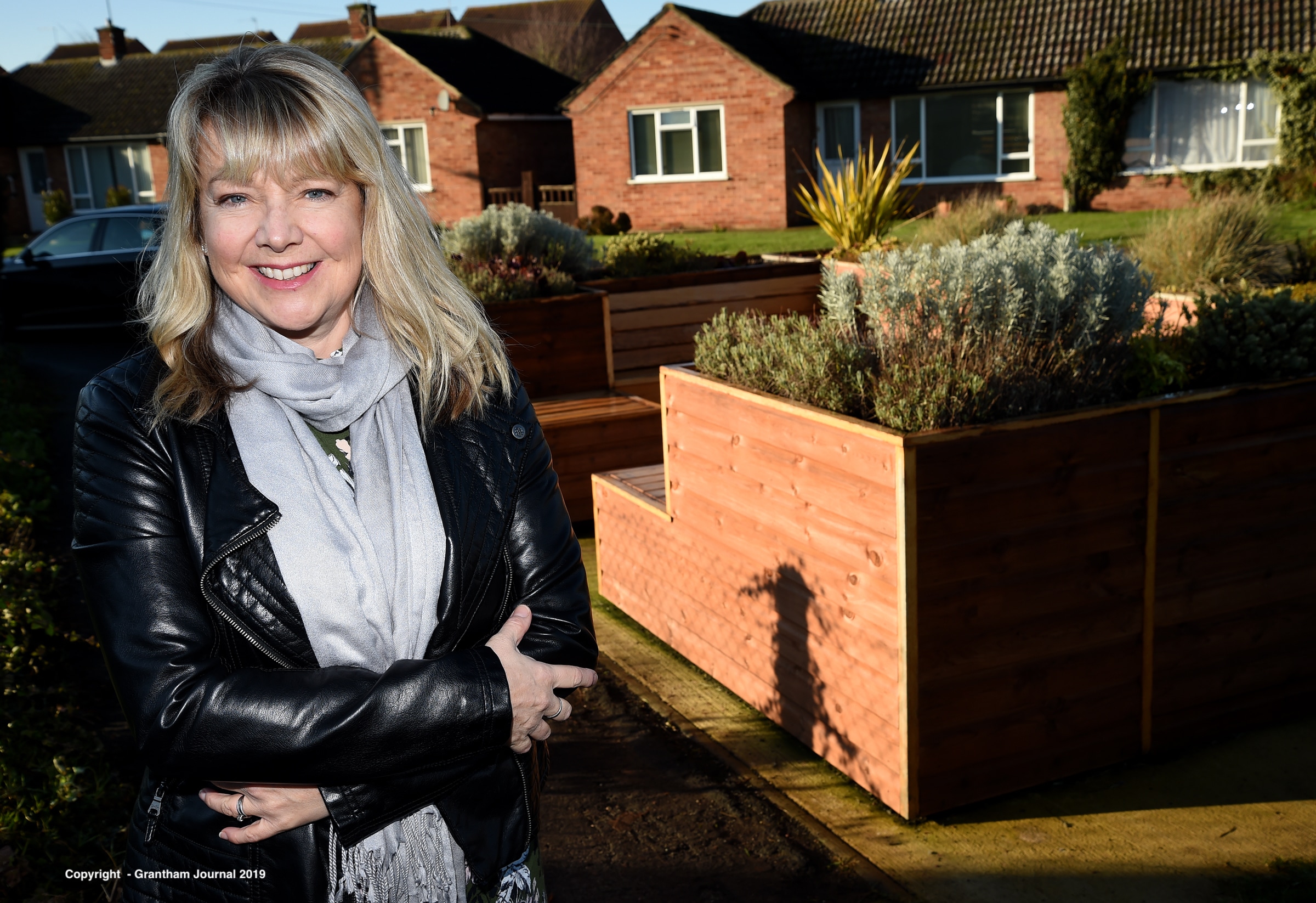
Designed and built following Disability Discrimination Act guidelines, the oak benches and flower beds are situated within easy walking distance of many elderly residents in the middle of Bottesford, Leicestershire, the village in which Lyndsey lives. “Being closer to nature, active social spaces and bringing people together is what it’s all about. The free to use ‘outdoor living rooms’ are accessible and inclusive for everyone.” Lyndsey explains.
“It’s a wonderful scheme. My neighbour, who recently lost her husband, and I come here often. It’s a lovely place, you always get into a conversation. I can also see it from my window, it’s lovely to look out on.” Joyce, 75 , local resident
With the backing of Sir Alan Duncan MP and also Rachel Reeves MP, co-chair of the Jo Cox Commission on Loneliness, who mentioned The Friendly Bench in her Westminster Hall debate on loneliness, The Friendly Bench has won praise from Loneliness Minister, Baroness Diana Barran, Parliamentary Under Secretary for Civil Society, Lords Minister at DCMS.
It has also won praise from former Loneliness Minister, Tracey Crouch MP: “It is such a creative but wonderfully simple idea to help combat loneliness. It was by far one of my favourite schemes to hear about during my time as Minister, not least because it seems an incredibly cost-effective was of creating connections within a micro-community. I would love to see many more Friendly Benches across the country.”
After successfully developing and launching the first The Friendly Bench model, with a second launched Leicestershire in 2019, The Friendly Bench is now expanding its network further.
Thanks to £240,000 of National Lottery funding, The Friendly Bench is extending across England, with schemes being launched in Bury, Ipswich, Chester, East Rugby, Rotherham and Halesowen in 2020, with eight further locations to follow within the next year. ”We are partnering with groups across the country who share our values, understand the importance of building social connections and can grow with us.”
Lyndsey gets the most joy from hearing how people have met for the first time at The Friendly Bench and then arranged to meet up again. ”Many times these people have lived in the same place for years, but it was the Bench that brought them together.”
“As we age, a sense of purpose and social connections is as important as a healthy body and mind. We enable people to age well in their own community and to continue to positively contribute to it.”
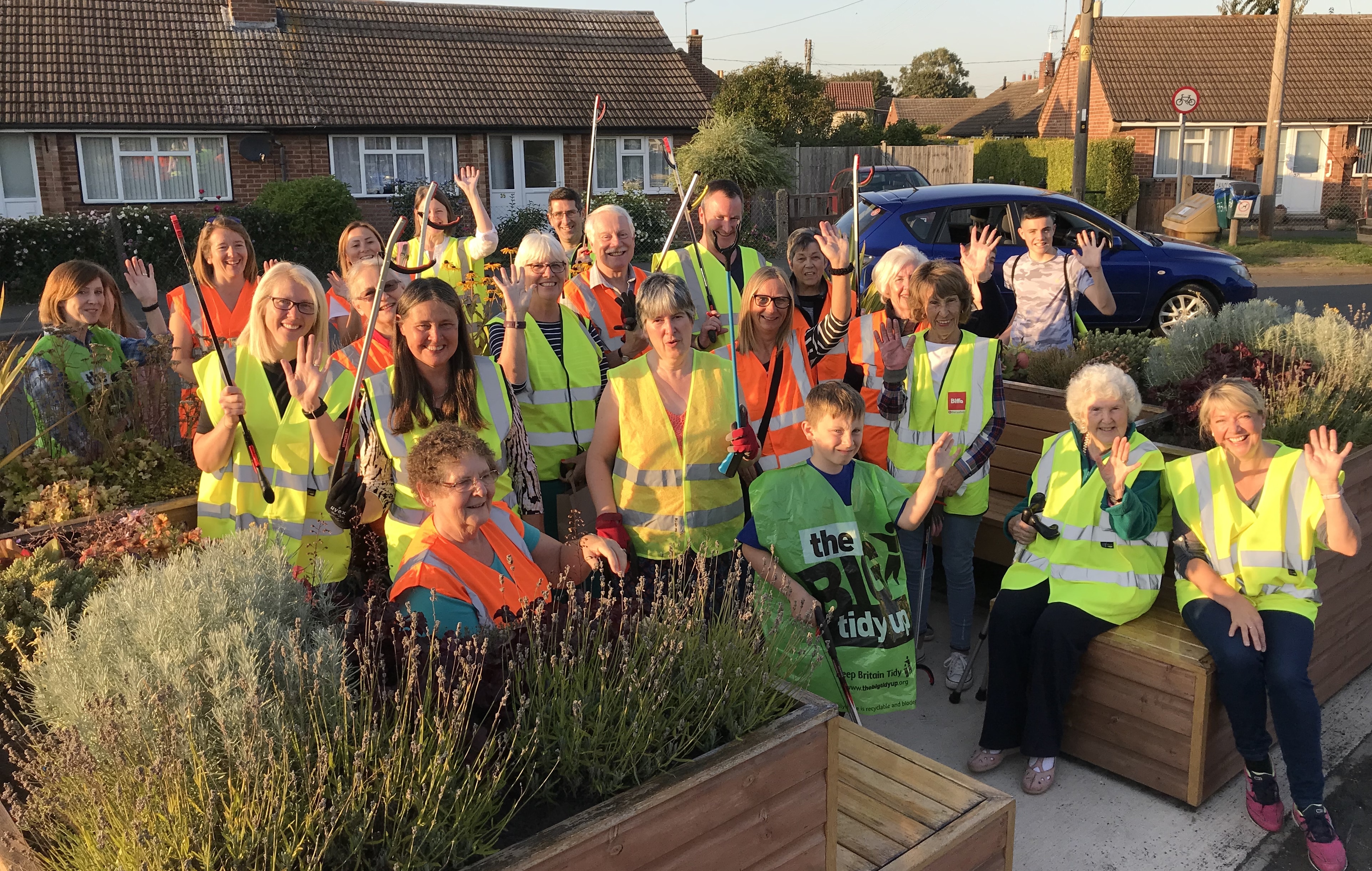
AtlasAction: If you are a group who has recognised loneliness and social isolation as a problem in your community and would like to join The Friendly Bench network, get in touch here.
Project leader
Lyndsey Young, Founder, The Friendly Bench
Partners
This project has been selected as part of AgeFutures, a new storytelling project that maps the innovations transforming the lives of older people, and the designers, entrepreneurs and community leaders – across all generations – behind them. Atlas of the Future is excited to partner with Independent Age.
Support the Atlas
We want the Atlas of the Future media platform and our event to be available to everybody, everywhere for free – always. Fancy helping us spread stories of hope and optimism to create a better tomorrow? For those able, we'd be grateful for any donation.
- Please support the Atlas here
- Thank you!
